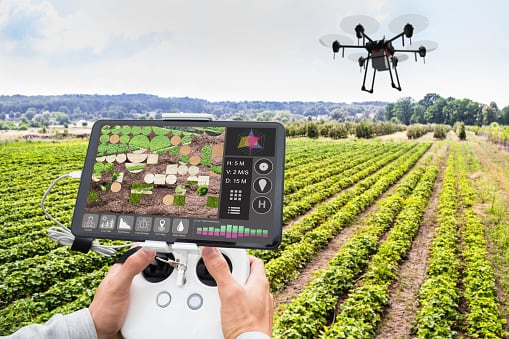Oilseed rape (Brassica napus) cultivation, covering over 36 million hectares in 2021, ranks among the world's most significant oilseed crops. However, conventional oilseed rape farming relies heavily on pesticides to combat insect pests and diseases, presenting numerous challenges.
While the distribution of pests and diseases varies globally, oilseed rape production is currently under threat from 37 insect pests, various diseases, nematodes and slugs. Synthetic pesticides have limitations, with increasing pest resistance and environmental concerns. Furthermore, in Europe, the ban on systemic insecticides like neonicotinoids has intensified the need for alternative pest control methods.
Beneficial microorganisms have gained attention for their potential to reduce the reliance on synthetic pesticides and enhance agricultural sustainability. These microorganisms can boost crop health by inducing pest and pathogen resistance, enhancing stress tolerance, improving plant nutrition, and promoting growth.
While microbial bio-fertilisers and bio-stimulants are becoming more common, microbial bio-control products remain limited. The challenges in utilising microbes as bio-control agents include susceptibility to environmental conditions, technical obstacles in field application and high costs.
One category of beneficial micro-organisms is entomopathogenic microbes, including fungi, viruses and protozoa, which are employed for crop protection. These organisms can act as epiphytes (surface / foliar application or soil amendment) or endophytes, colonising a plant's intercellular spaces. Endophytic colonisation allows for continuous plant protection, and these fungi can produce specialised metabolites that enhance plant resistance to pests and pathogens while promoting plant growth.
Among these beneficial fungi is Beauveria bassiana (B. bassiana), a naturally occurring soil fungus used as an epiphytic bio-control agent against various agricultural pests. B. bassiana can also establish itself as an endophyte in several host plants through seed inoculation, root dipping or foliar spraying.
Key aspects of plant protection
A recent study by researchers at the University of Turku investigated whether B. bassiana could serve as an endophyte in oilseed rape and contribute to plant protection. They explored three key aspects of B. bassiana: endophytic potential, effect on plant growth and metabolites, and protection against flea beetle damage.
The study demonstrated that B. bassiana could endophytically colonise oilseed rape following seed inoculation. While previous studies had shown successful leaf sprays, this research confirmed that seed inoculation could establish endophytic colonisation.
Additionally, while B. bassiana seed inoculation did not significantly impact oilseed rape germination or plant growth, it induced the bio-synthesis of various plant metabolites, including flavonoids, which are known to enhance plant resilience against pests and pathogens.
Finally, in a semi-field experiment, seed inoculation did not provide significant protection against flea beetle damage. While B. bassiana-inoculated seedlings showed slightly higher mortality, the amount of leaf area damaged by beetles was similar between the inoculated and control seedlings.
The study's results indicate that while B. bassiana can establish endophytic colonisation in oilseed rape and induce the production of certain plant metabolites, its effectiveness as a plant protection agent remains uncertain.
However, the relatively low endophytic colonisation rate and absence of significant pest protection in the semi-field experiment suggest the need for further research to assess its effectiveness as a biological control agent for oilseed rape pests and pathogens — specifically, the potential of different B. bassiana strains and their impact on oilseed rape production and protection.
Source: Pest Management Science
“Endophytic Beauveria bassiana induces biosynthesis of flavonoids in oilseed rape following both seed inoculation and natural colonization”
https://doi.org/10.1002/ps.7672
Authors: Anne Muola, et al.




